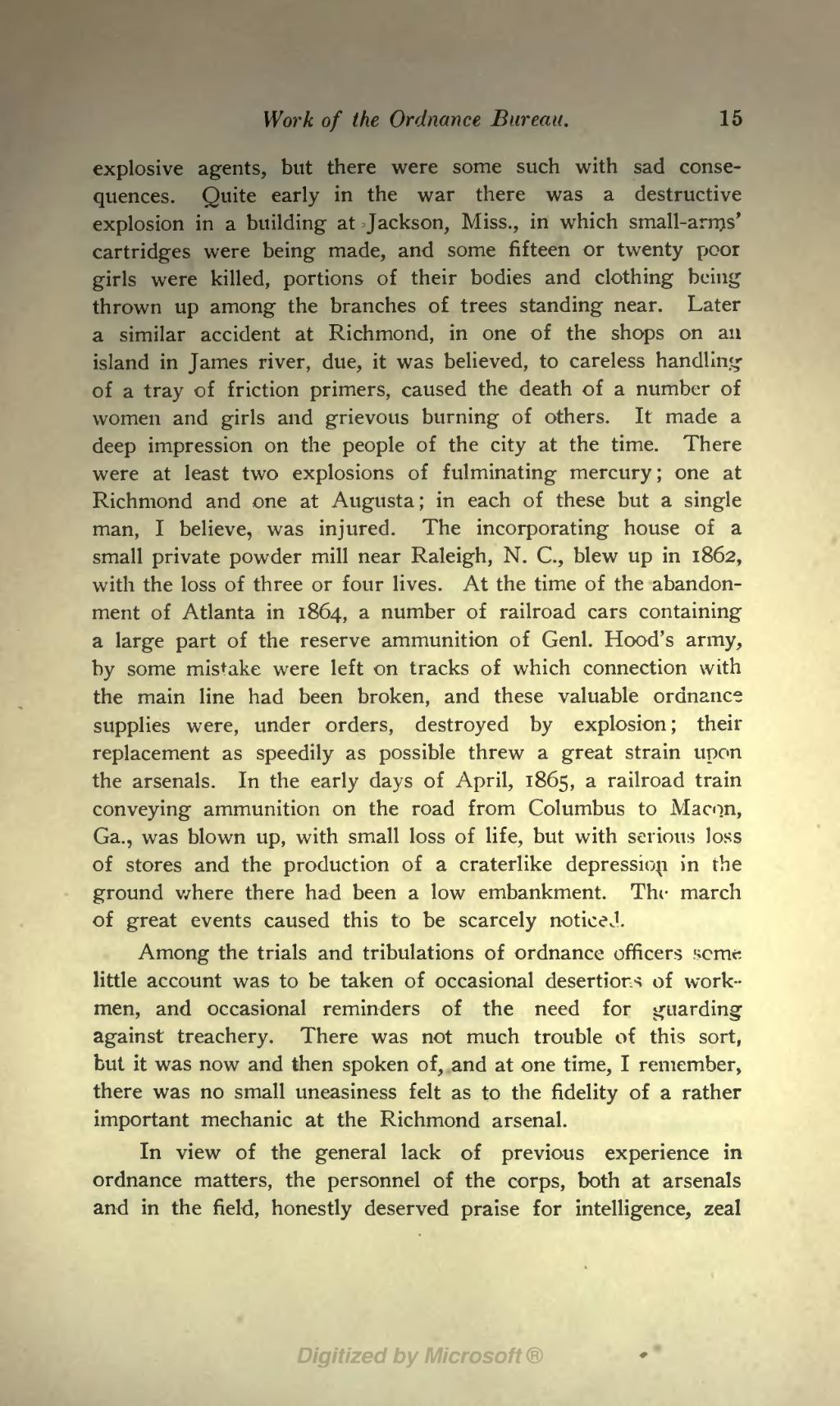explosive agents, but there were some such with sad consequences. Quite early in the war there was a destructive explosion in a building at Jackson, Miss., in which small-arms cartridges were being made, and some fifteen or twenty poor girls were killed, portions of their bodies and clothing being thrown up among the branches of trees standing near. Later a similar accident at Richmond, in one of the shops on an island in James river, due, it was believed, to careless handling of a tray of friction primers, caused the death of a number of women and girls and grievous burning of others. It made a deep impression on the people of the city at the time. There were at least two explosions of fulminating mercury; one at Richmond and one at Augusta; in each of these but a single man, I believe, was injured. The incorporating house of a small private powder mill near Raleigh, N. C, blew up in 1862, with the loss of three or four lives. At the time of the abandonment of Atlanta in 1864, a number of railroad cars containing a large part of the reserve ammunition of Genl. Hood's army, by some mistake were left on tracks of which connection with the main line had been broken, and these valuable ordnance supplies were, under orders, destroyed by explosion; their replacement as speedily as possible threw a great strain upon the arsenals. In the early days of April, 1865, a railroad train conveying ammunition on the road from Columbus to Ma con, Ga., was blown up, with small loss of life, but with serious loss of stores and the production of a crater-like depression in the ground where there had been a low embankment. The march of great events caused this to be scarcely noticed.
Among the trials and tribulations of ordnance officers some little account was to be taken of occasional desertions of workmen, and occasional reminders of the need for guarding against treachery. There was not much trouble of this sort, but it was now and then spoken of, and at one time, I remember, there was no small uneasiness felt as to the fidelity of a rather important mechanic at the Richmond arsenal.
In view of the general lack of previous experience in ordnance matters, the personnel of the corps, both at arsenals and in the field, honestly deserved praise for intelligence, zeal
